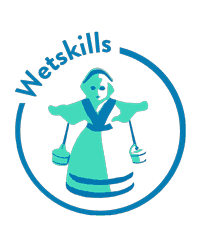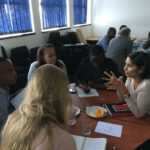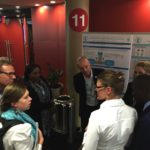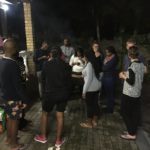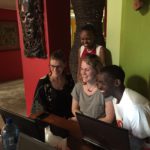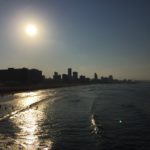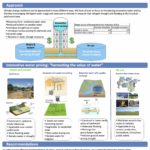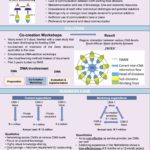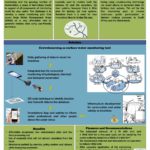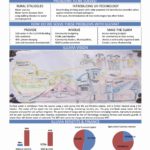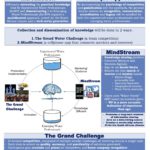
- This event has passed.
Wetskills South Africa 2016
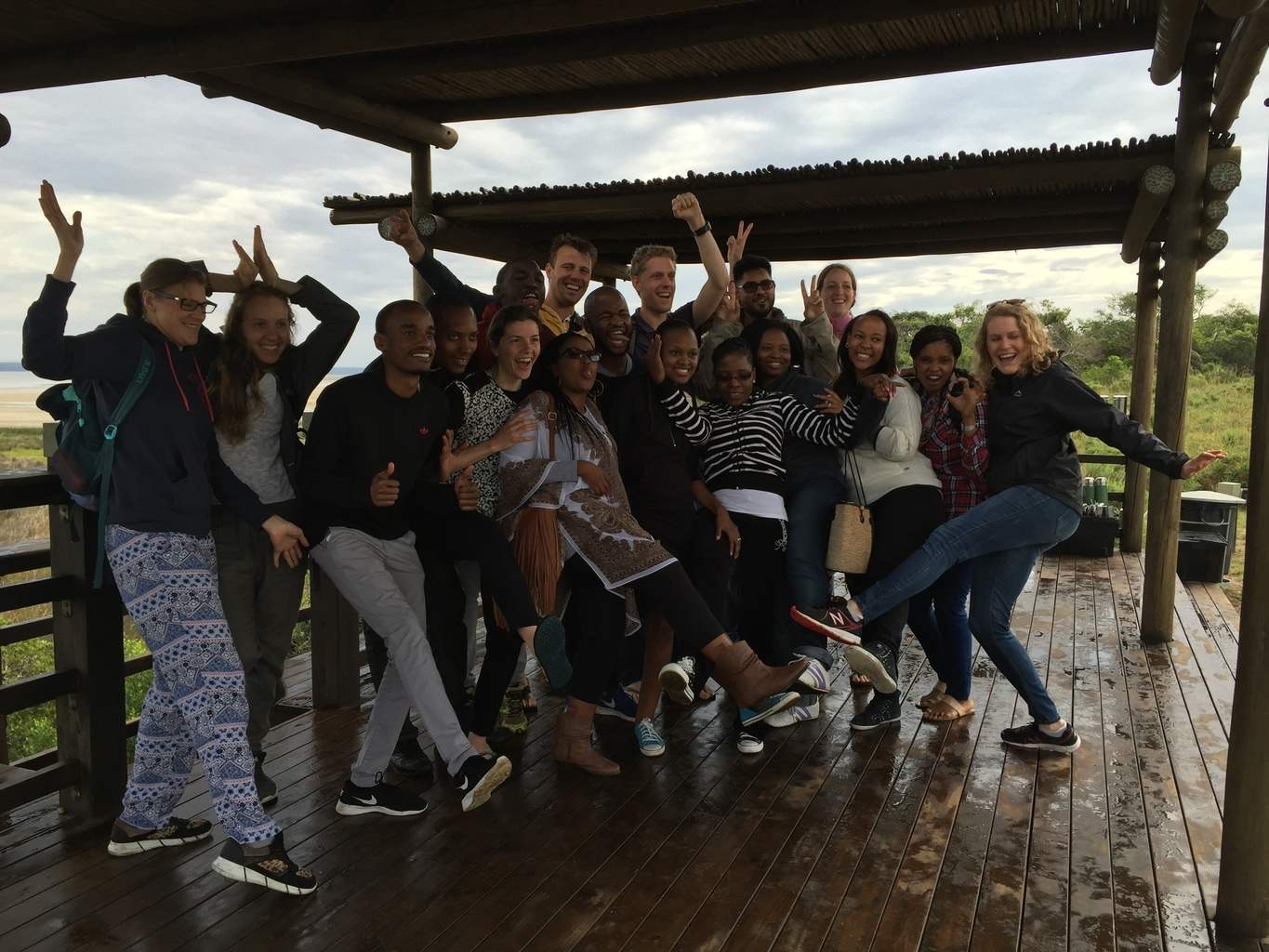

On the 16 May 2016 five groups of young water professionals presented their innovative ideas for water related challenges during the Wetskills competition. The winning team presented an impressive solution for dealing with drought and flooding in the Inkomati river basin area, shared by South Africa, Swaziland and Mozambique. Henk Ovink, Special Envoy for International Water Affairs of the Netherlands was the head of the jury. He praised the five international teams for their out-of-the-box thinking. (see quote below)
Between 6 and 18 May 2016, the third South African Wetskills Challenge took place in Durban. The event was partially parallel to the WISA 2016 Conference organized by the Water Institute of Southern Africa (WISA). During the Wetskills Challenge 19 students and young professionals from South-Africa, Swaziland and The Netherlands amongst others worked together on actual water related cases. The cases of this edition were provided by Aquadactics (World Water Academy), Berson UV, Kingfisher Project, water authority Drents Overijsselse Delta en water authority Vechtstromen.
Practical Information

Event: WISA 2016 conference
Locations: St. Lucia, iSimangaliso National Park, Durban
Facts:
Participants: 19
Cases: 5
Countries: 6 (South Africa, Swaziland, Nigeria, Zimbabwe, Rwanda and The Netherlands)
Pictures of the event

Event Cases

Case 1: Climate resilience
Case owner: Water Authority Vechtstromen
The Inkomati catchment area is currently coping with extreme drought problems because of the El Nino effect. The drought leads to a decrease of the crops and water supply, and thus potential unrest in the area. The effects of climate change are expected to lead to even worse extremes considering drought and flood problems in this region. One needs to cope with this problem by adapting to these extreme conditions. The challenge is to improve Climate Change resilience in the Inkomati catchment area, through innovation. In the REMCO trans boundary cooperation, in the Incomati River Catchment, DWA Swaziland and the partners Arasul in Mozambique and IUCMA in South Africa have the ambition to make the Incomati catchment more climate change resilient. The challenge for the students/YWP is to find innovative solutions to cope with the extreme drought and flood problems in the Incomati catchment area, with the final aim: ‘to improve climate change resilience in the Incomati catchment area’.
Case 2: The international learning cycle
Case owners: Kingfisher Project
In South Africa water management is being decentralized due to the National Water Act from 2008. Nine Catchment Management Agencies (CMAs) are being established, responsible for the regional water management. These CMAs can be compared to the Dutch Water Authorities (Waterschappen), which have a long history with decentralized water management. Since 2004, Dutch Water Authorities have been exchanging knowledge with the South African Department of Water Affairs and the CMA’s. The Kingfisher project supports among othersthe establishment and development of the nine CMAs in South Africa. Ten Dutch regional water authorities are involved and execute a twinning programme with the CMAs. Good results have been achieved so far. However, because of the large extent and complex international structure of the Kingfisher project, it is difficult to share the lessons learned with all the CMAs. There is not an established mutual learning cycle. The Kingfisher project should benefit from an innovative learning cycle in order to become more effective and efficient.
Case 3: Future monitoring plan for international water authorities
Case owner: Water Authority Drents Overijsselse Delta
Reliable monitoring data contributes to a sustainable water supply for now and the future. That’s why water authorities from all over the world collect data about hydrological, chemical and biological parameters. However, there’s a big contrast in the density of the network, analysis methods, quality and availability of the data due to several causes like financial capacity, knowledge constraints and the size of the management areas. There is a big difference between the availability of information, data and measuring programs between South Africa and the Netherlands: both with their own pros and cons. But why should each country or region have its own monitoring plan? Water authority Drents Overijsselse Delta would like to develop ‘a monitoring plan for the future’ that is both applicable in South Africa and the Netherlands.
Final poster and pitch
Final poster and pitch
Final poster and pitch
Case 4: Simply safe water
Case owner: Berson UV
Rural areas globally suffer from water scarcity and water safety issues. For decades the development of water treatment technology has been focused on large scale central treatment. These techniques are efficient for urban areas, but less suitable for rural areas. In cases where water is transported from central facilities to rural communities, water quality deterioration often is an issue. Since 40 years, UV has proven to be a reliable and cost effective disinfection method, providing safety against chlorine resistant pathogens. A recent development is the introduction of solar powered lamp drivers. This opens up application of UV in areas without (reliable) source of electricity. Though the technology is now available, there are still challenges in the introduction of solar powered UV for rural areas: 1. Selection of a simple and reliable pre‐ filtration for direct treatment of surface water; 2. Generating of acceptance of UV technology at a government, NGO and local level; 3. Development of a service organization that is able to maintain and repair the UV systems. Therefore an integral approach is needed to successfully introduce solar powered UV in rural South Africa.
Case 5: Unlocking experiential knowledge
Case owner: AquaDactics
Assessments show a scarcity in the actual operating and maintenance skills in South Africa. Moreover a brain‐drain is expected within the municipalities, due to the retirement of highly experienced people. Well‐knowledgeable and well‐skilled staff is the main prerequisite to operate and maintain assets sustainably. The transfer of existing expertise from the retiring staff to younger staff is inevitable. In the vision of Aquadactics, capital investments for water (supply, wastewater, and management) needs to be addressed parallel to the knowledge and skills development of human resources. But investing in this is not so sexy as in investing in captial assets. A main challenge is to convincing the sector to invest in ‘unlocking the experiential knowledge that is currently present in the water sector .. and make it financially attractive’.
Final poster and pitch
Final poster and pitch
Do you also want to submit a challenge and get an out-of-the-box concept (Pitch and Poster) in one of our Wetskills event worldwide? The Wetskills organization is looking for Case Owners for the events worldwide; companies, knowledge institutes and organisations that formulate their case and support this Wetskills programme, see as example: Leaflet Case Sponsors Wetskills-South Korea 2018. For more information: contact Johan Oost (johan.oost@wetskills.com).
Event Partners

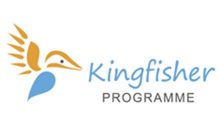
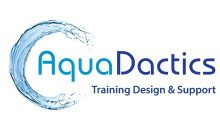
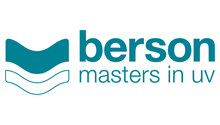
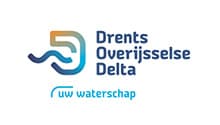
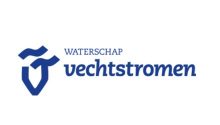

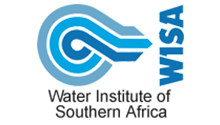
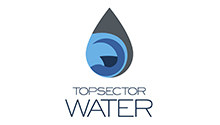
Event Blogs

